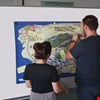
/ Mediterranean
Capacity Building Workshops for youth in Malta: Registrations are now open
The regional organisation Global Water Partnership - Mediterranean (GWP-Med | www.gwpmed.org) and the Energy and Water Agency (EWA | www.energywateragency.gov.mt) of Malta are organizing two back-to-back Capacity Building Workshops in November 2019 in Malta: 12-13/11: ‘Communicating Water Trends & Innovation to Engage Locals and Tourists’, and 13-14/11: 'Non-Conventional Water Resources Management: Local Solutions'.
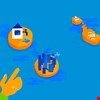
Call for youth-led project proposals for communicating water in Malta
The regional organization Global Water Partnership – Mediterranean (GWP-Med | www.gwpmed.org) and the Energy and Water Agency of Malta (EWA| www.energywateragency.gov.mt) are issuing a call for proposals for college and university students and newly graduates of Art & Design, Media & Communication, Social Sciences and History backgrounds.

/ Mediterranean
Pre-announcement for two capacity building workshops for youth in Malta
The regional organisation Global Water Partnership - Mediterranean (GWP-Med | www.gwpmed.org) and the Energy and Water Agency (EWA | www.energywateragency.gov.mt) of Malta are organizing two back-to-back Capacity Building Workshops in November 2019 in Malta: 12-13/11: ‘Communicating Water Trends & Innovation to Engage Locals and Tourists’, and 13-14/11: 'Non-Conventional Water Resources Management: Local Solutions'.
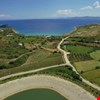
Local rainwater harvesting solution gives boost to water-scarce island’s economy
Nature-based solution implemented by GWP-Med with support by The Coca-Cola Foundation relieves water stress for Greek island of Lipsi
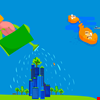
/ Mediterranean
Call for youth-led proposals on Non Conventional Water Resources in Malta
The regional organization Global Water Partnership – Mediterranean (GWP-Med | www.gwpmed.org) and the Energy and Water Agency of Malta (EWA| www.energywateragency.gov.mt) are issuing a call for proposals for college and university students and newly graduates.

/ Mediterranean
Optimising water efficiency in citrus farming through ICT technology: a Nexus solution
GWP Mediterranean just launched a pilot ICT application to optimise irrigation in citrus fruit farming in Sicily and Sardinia, Italy.
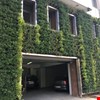
/ Global, Mediterranean
Increasing urban green in Thessaloniki
A vertical garden, with over 800 pots and four kinds of plants watered by a rainwater collection system, changed the landscape in the second biggest city of Greece!
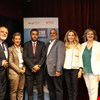
/ Mediterranean
NCWR Programme: 10 years of impact in the Mediterranean
The Mediterranean is a region rich in history but poor in water resources. The dry landscape led ancient civilisations to seek alternative resources to supply water in their communities. Local wisdom prompted the construction of cisterns to collect rainwater. Rain harvesting is a simple yet revolutionary idea, as it is a cost-efficient practice utilising a sustainable non conventional water source, embodying recycling and reuse principles. Translating traditional practices into modern solutions to address water scarcity was the starting point of the Non Conventional Water Resources Programme in the Mediterranean in 2008.

/ Mediterranean
Reviving a historic reservoir to serve a new purpose and a noble cause
The NCWR programme has positively impacted the lives of 65,000 people in the Maltese Islands by collecting and reusing more than 17 million litres of water on an annual basis.